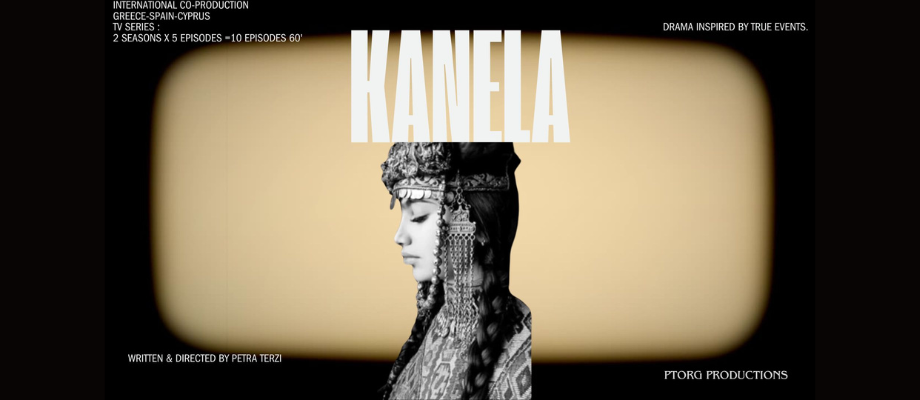
Petra Terzi, besides being an award-winning director and screenwriter, is the driving force behind international film festivals such as the Cyprus International Film Festival and the BRIDGES International Film Festival, held in Cyprus and cities in Greece respectively (Nafplio, Corinth, Loutraki).
Ms. Terzi’s face equally reflects her love for creating cinematic images—in an extensive body of work that includes titles such as “She Should Run-Cyprus” and the upcoming “Kanela”—with an organizational spirit that promotes diversity, the empowerment of women’s voices, and borderless collaboration at every step of the festivals she curates.
The prolific Petra Terzi spoke to Days of Art in Greece about the milestones in her life, the InspireTV+ platform, artificial intelligence, her dreams for the next chapters of the film festivals she directs, and the International Cultural Center “Petra Terzi” (“Petrosophy”).
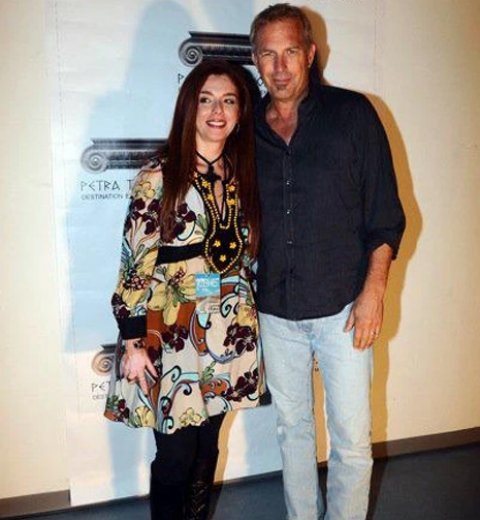
Petra Terzi with Kevin Costner
Dear Ms. Terzi, thank you very much for granting us this interview. Looking at your work, both in terms of your creative output and your organization of various festivals in Greece and Cyprus, one can sense your passion for the seventh art. Do you remember that defining moment for you, or a specific work of art that sparked the beginning of your career?
From an early age, I felt the power of images to tell stories without words. I vividly remember the first time I saw Francis Ford Coppola’s film Dracula; that was when I realized that cinema can be a bridge between people and their emotions, between reality and dreams. This feeling led me to seek out the filmmaker in 2005, who even gave me an autograph for the Cyprus International Film Festival we were starting at the time, to study film directing and digital video production later on, and to create and serve the seventh art with passion and consistency to this day.
Both the Cyprus International Film Festival and the InspireTV+ platform you curate focus on promoting films that address equality, multiculturalism, and the empowerment of the Greek language abroad. What criteria do you use to select the films shown at your festivals or on your platforms? Is it easy these days to find films that are both well-produced and relevant to the themes you focus on?
At the festivals we organize—the Cyprus International Film Festival and the Bridges International Film Festival—and on the Inspire-TV.com platform, we seek out voices that inspire. We are not only interested in technical excellence, but above all in the message, truth, and sensitivity of the creators. Issues such as equality, empowerment, multiculturalism, and hope are in our DNA. Although independent production has its difficulties, there are now more creators than ever who dare to express something meaningful.
“Independent cinema is the soul of freedom in art.”
How do you connect the themes of peace, the environment, and women’s empowerment through Cyprus Women Environmental Peacemakers?
CWEP was born out of my need to raise international awareness of the violent division of Cyprus in 1974, which tends to be forgotten, but also to make women’s voices heard in the construction of peace and the protection of the environment. Women have a natural role as mediators, healers, and caregivers.
Through CWEP, we create dialogues, workshops, and actions that connect environmental awareness with social cohesion and reconciliation. For me, peace begins first with the ecology of the soul.
Our vision to create greenery in the buffer zone of Cyprus by planting trees in honor of the missing persons from both communities has resonated and inspired women in other countries to do the same: to plant trees and declare peace through their work.
The more we talk about peace and express it through actions that care for the environment and ourselves, the more we strengthen the ecosystem, our soul, and ultimately influence the mindsets of those who fight against it, often in the name of economic interest.
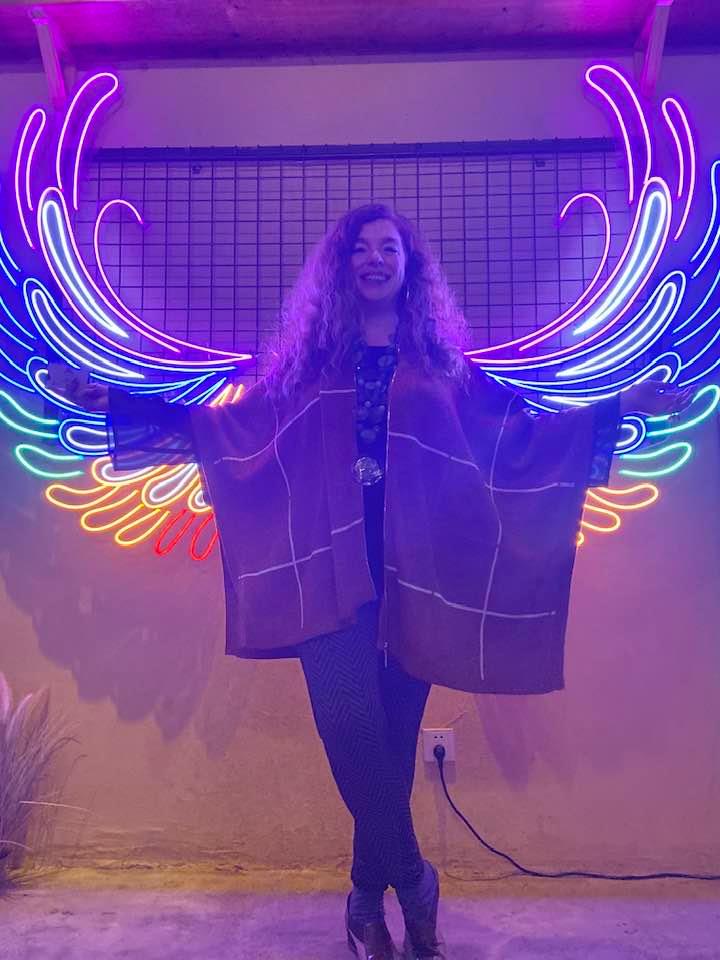
Petra Terzi
One can see from your social media posts that the festivals you organize, such as BRIDGES, have the support of independent filmmakers from the US and European countries. What is your vision for international collaborations with independent filmmakers from around the world?
Independent cinema is the soul of freedom in art. Through our festivals, we want to build bridges between cultures — and we are succeeding in doing so, bringing together creators from Europe, America, Asia, and Africa. My vision is to create an international network of collaborations, where stories travel across borders, languages, and production formats. The inspire-tv.com platform was born during the pandemic to host our festivals online, but it seems to have the potential to evolve into the opposite of commercial platforms, by showcasing and promoting independent artists.
“Through international collaboration, you learn to see the world differently…”
How do you assess the application of Artificial Intelligence in cinema? Does it enhance the work of creators technically, or does it hinder the development of their personal voice?
Artificial intelligence is a tool—not an adversary. Like any innovation, it requires awareness and an ethical framework. It can technically enhance creativity, accelerate processes, and open up new ways of storytelling. However, the soul of art, emotion, and inner truth remain purely human. I believe in a dialogue between technology and humanity, not a conflict.
As a creator, you are involved in international co-productions, such as the upcoming Kanela. Tell us, if you like, about the challenges an artist faces, but also about all the new things they discover when collaborating with high-level colleagues from abroad.
Kanela is a labor of love, inspired by true stories and deep memories. Through international collaboration, you learn to see the world differently—to respect other cultures, enrich your perspective, and evolve. The challenges are many, but the reward is a joint creation that transcends the boundaries of country, language, and tradition. It is a co-production of Greece, Spain, and Armenia.
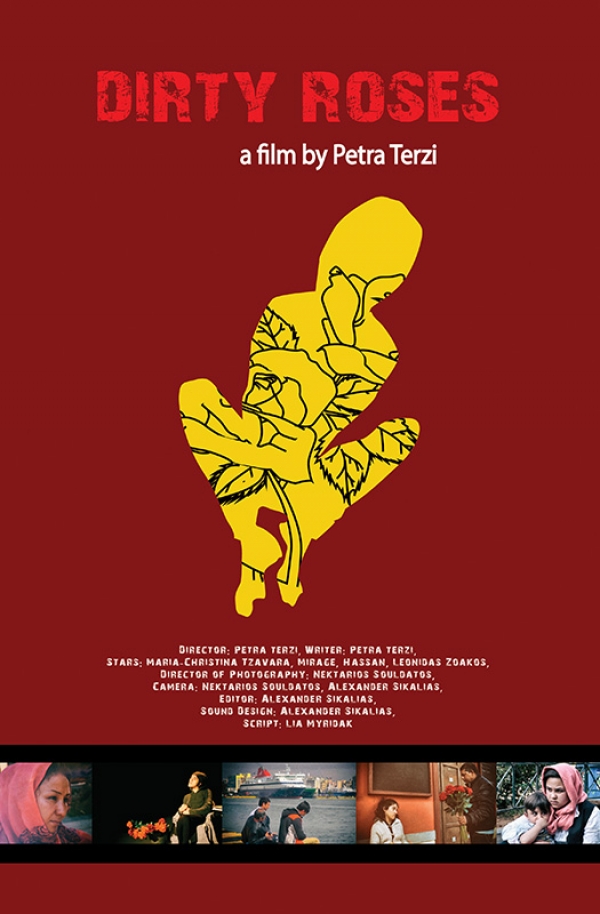
Dirty Roses| a film by Petra Terzi
You are a member of the European Film Academy and have given lectures outside Greece, including at the Communication University of China. What has been your experience from this contact? Can we “learn” something from the way film artists in China communicate their art and produce film genres?
My experience at the Communication University of China was eye-opening. Chinese artists approach art with discipline, collectivity, and respect for their history. We in Europe have a more personal, existential relationship with creation. When these two approaches meet, they give rise to something new and extremely interesting.
“Petrosophy is my vision for a space where art, culture, and human philosophy come together.”
Tell us about the next chapter for the festivals you run. Do you have any dreams, expectations, challenges, or goals as they progress and develop as institutions?
Our festivals develop organically, with respect for the creators and the audience. That is why the BRIDGES Festival now takes place in three cities, Corinth, Loutraki, and Nafplio, with different programs, themes, and awards. The next step is further internationalization, networking with film institutions, universities, and streaming platforms. I want the festivals to function not only as fronts, but as workshops for ideas, creativity, and cultural diplomacy.
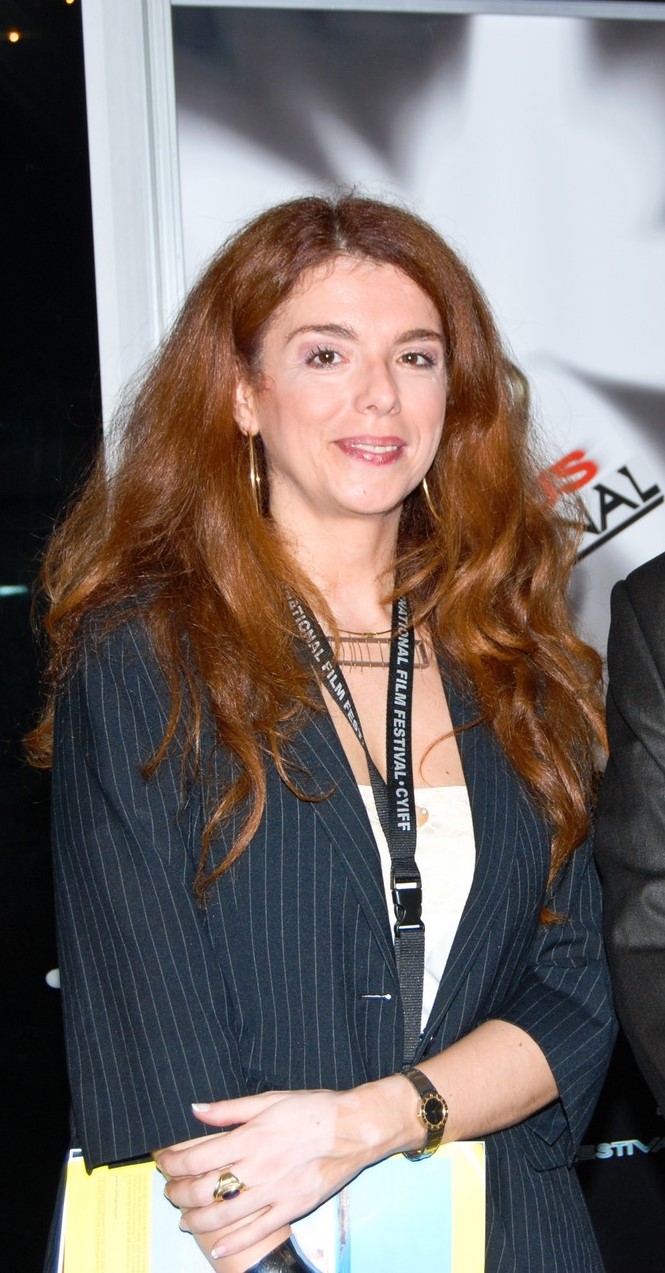
Petra Terzi
The completion of the International Cultural Center “Petra Terzi” (“Petrosophy”) in Corinth is currently underway. What will its character be, and what kind of events will it focus on? Will international meetings and conferences be held there?
Petrosophy is my vision for a space where art, culture, and human philosophy come together. It will host exhibitions, screenings, seminars, international meetings, and artist residencies.
I aspire for it to become a point of reference in Agioi Theodoroi, Corinth, just one hour from Athens—a place of spiritual and artistic exploration that will reflect the harmony between aesthetics, thought, and action.
I have been advocating decentralization since 2006, and I see that the provinces are thirsty for high-quality artistic events in their local areas. Young people, in particular, need more sources of inspiration and influence beyond the internet—they need vibrant cultural experiences that cultivate imagination and thought.

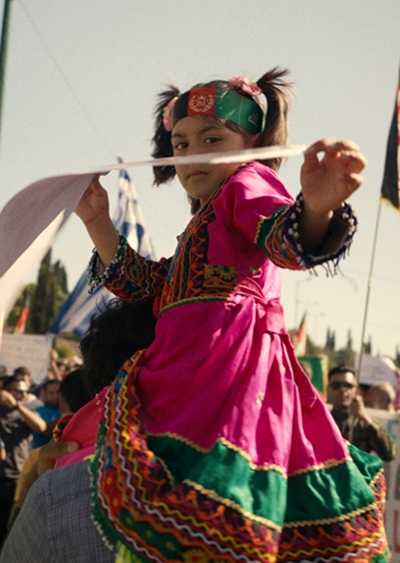

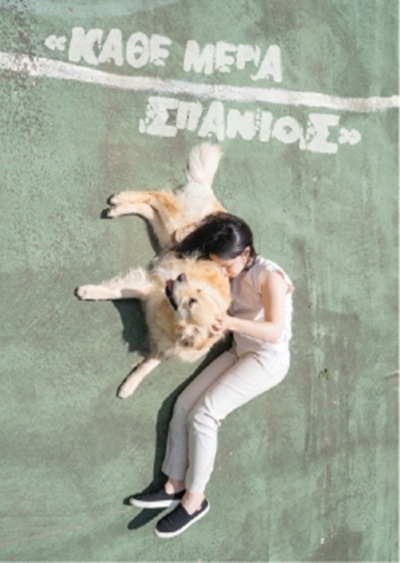



Leave A Comment